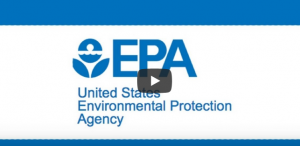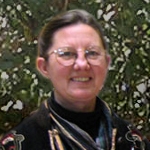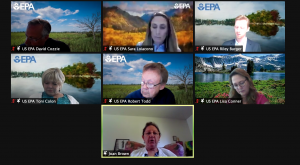Sister Joan Brown’s Testimony at EPA Hearing
When I was in an area East of Artesia called loco hills several weeks ago in 105 temperatures I put on a gas mask because the fumes were so bad. In Hobbs, where I met with faith leaders and ministers the air was still bad and I felt so terrible that the people who live there breathe this day in and day out. -Joan Brown, OSF
 (The U.S. Environmental Protection Agency (EPA) is taking the first step to develop a proposed rule to reduce methane and other harmful pollutants from new and existing sources in the oil and natural gas industry, beginning with a broad public outreach effort to gather community and stakeholder input on June 15 and 16.
(The U.S. Environmental Protection Agency (EPA) is taking the first step to develop a proposed rule to reduce methane and other harmful pollutants from new and existing sources in the oil and natural gas industry, beginning with a broad public outreach effort to gather community and stakeholder input on June 15 and 16.
These activities include opening a public docket for pre-proposal comments, previously held training sessions on the rulemaking process and how to participate in it, and these listening sessions for stakeholders. These actions are a part of our response to a directive in Executive Order 13990, “Protecting Public Health and the Environment and Restoring Science to Tackle the Climate Crisis)”
Watch a video on the Listening Sessions
Here is the text of testimony from Joan Brown, OSF, executive director of New Mexico Interfaith Power & Light
 The lessons of caring for our Common Earth are rooted in me from my Kansas farm background. I also have had personal family experience with the oil and gas industry when my niece married an oil worker in southern Kansas. Unfortunately, he was killed in a truck accident while working.
The lessons of caring for our Common Earth are rooted in me from my Kansas farm background. I also have had personal family experience with the oil and gas industry when my niece married an oil worker in southern Kansas. Unfortunately, he was killed in a truck accident while working.
I know how difficult it is to balance economics, care of creation and human health, but we have a moral and ethical imperative as human beings to do so. A quote by former Pope Benedict nudges me in my ministry.
“The external deserts in the world are growing, because the internal deserts have become so vast. Therefore the earth’s treasures no longer serve to build God’s garden for all to live in, but they have been made to serve the powers of exploitation and destruction.”
Pope Francis, in a meeting with oil executives stated that climate change is a challenge of “epochal proportions.” And before the UN climate meeting in 2015 he mourned that we are on a suicidal path.
 Just 2 weeks ago I was in the Permian Basin in New Mexico on one of many trips to meet with faith leaders and community people and to see the methane pollution with special flr cameras. As usual the air was acrid, the stories of people very sad. Again I cried at the incredible devastation of ranchland, farmland and wild land into vast patches of rampant oil and gas production. Looking into the future I could not imagine this area ever being without oil equipment, pipes and pollution. Another sacrifice zone in our state.
Just 2 weeks ago I was in the Permian Basin in New Mexico on one of many trips to meet with faith leaders and community people and to see the methane pollution with special flr cameras. As usual the air was acrid, the stories of people very sad. Again I cried at the incredible devastation of ranchland, farmland and wild land into vast patches of rampant oil and gas production. Looking into the future I could not imagine this area ever being without oil equipment, pipes and pollution. Another sacrifice zone in our state.
When I was in an area East of Artesia called loco hills several weeks ago in 105 temperatures I put on a gas mask because the fumes were so bad. In Hobbs, where I met with faith leaders and ministers the air was still bad and I felt so terrible that the people who live there breathe this day in and day out. I felt guilty that I could go back to Albuquerque. I cried as I heard one woman share that there is so much unusual cancer and asthma in the economically poor Hispanic community there. My memory is still haunted by an encounter several years ago where an African-American woman invited me into her home because she was concerned about a strong odor that was even stronger when the relentless wind blew in one direction. She did not realize the problem was methane from a nearby well, that to this day is still polluting. She had a nephew die of a rare cancer. I still hear stories in my ears from native brothers and sisters in the Four Corners region, another methane hotspot. So much environmental and economic injustices plagues our state and yet financially we are one of the poorest states in the nation.
